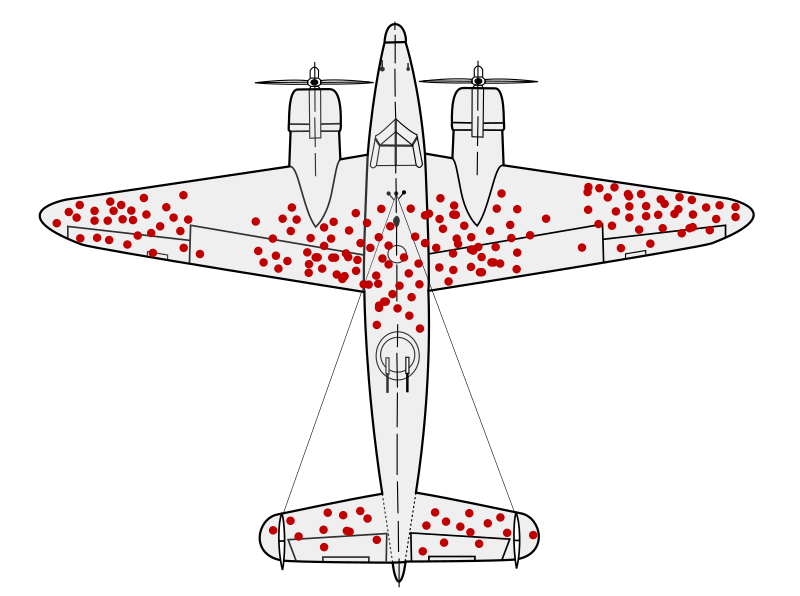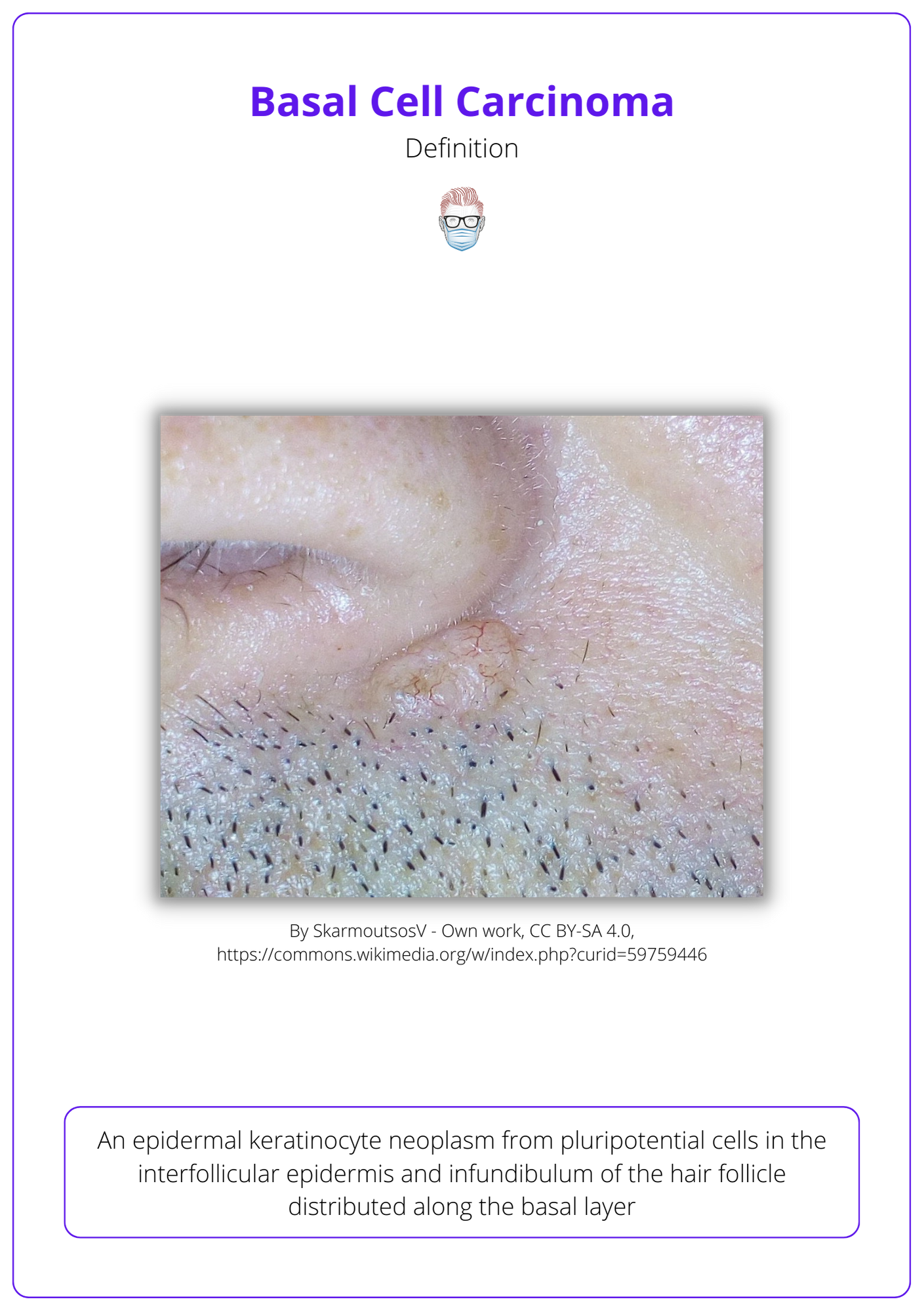In this week's edition
- ✍️ Letter from P'Fella
"Survivorship bias" in Plastic Surgery - 🧨Ask the Expert
How to get your paper published - 🤓 Study on Sunday + Quiz
do you really know basal cell carcinoma? - 🎭 Upcoming Events
10 upcoming events for you. - 🐣 Tweets of the Week
Memes, virals & threads. - 🚀 New Features
Journal club with Powerpoint slides! - 📝 Articles of the Week
3 quick-reads to stay up to date
1 deep-dive (under renovation this week!)
Fun Fact: Last week's journal club on Pitanguy's line was the most popular so far! The powerpoint slides were used in 19 different countries.

Survivorship Bias


How to get Published!

Expert: Hatan Mortada, Plastic & Reconstructive Surgery Resident, Saudi Arabia.
When I started my plastic surgery residency, I was worried about maintaining my passion for academic writing and publishing scientific papers with the busy hours during duty.
To maintain my passion for research during my first year of residency, I have mentioned a few tips that helped me.
1. Schedule your writing time when you are most productive. For me, I dedicate a full day of my week to research writing and starting new projects.
2. Make an outline. An outline of what you want to write is essential. Once I knew "what" I wanted to write, it was a lot easier to sit down and write.
3. During your dedicated research hours, turn off your emails, phone, and anything else that might distract you.
4. Don't listen to your inner perfectionist. When you're writing, don't worry about grammar or spelling. That's what editing is for.
5. Keep up with newly published research ideas in your field. You will be able to write and find new ideas to conduct, sparking creativity and new insights. I use an app called researcher, it's an amazing application to keep up with the latest articles in your field of interest.
6. Consistency and persistence are key. For my work, I use the pomodoro technique, which I set me 50 minutes of focused work and 10 minutes for rest, then repeat.

Basal Cell Carcinoma

Basal cell carcinomas are caused by several compounding factors.
- Genetic: xeroderma pigmentosum, Bazex, Rombo, albinism.
- Environmental: Exposure to ultraviolet radiation (UVR), prior radiotherapy
- Immunosuppressed: transplant, HIV, hematologic malignancy, Gorlins
- Pre-existing lesions: naevus sebaceous.
The development of BCC is associated with loss of inhibition of the Hedgehog signalling pathway, which regulates cell growth and differentiation. This is the result of:
- Inactivating mutations in tumour-suppressor protein patched homologue 1 (PTCH1) gene
- Activating mutations in smoothened (SMO) transmembrane protein gene
- Suppressor of fused (SUFU) gene in Gorlin syndrome

10 Courses, Conferences and Webinars
- EURAPS Brachial Plexus - October 13th
- RSTN Becoming a plastic surgeon - Oct 18th
- Plastic Surgery, The Meeting - Oct 2022.
- PLASTA Breast TIG Fellowship - Oct 17th
- BAPRAS Lower Limb Reconstruction - Oct 26th
- Aec 5.1 Limb Reconstruction - Oct 26th.
- EURAPS Eyelid Surgery - November 15th
- BAPRS Congress - November 30th 2022
- BAPRAS 2022 Congress - November 2022.
- EURAPS Facial Paralysis - December 15th

3 top-picks!
Is the paper you need stuck behind a paywall?
— Dr Lisa Nivison-Smith (@LNivisonSmith) October 5, 2022
Five websites every researcher should know to access any research paper for free@AcademicChatter@OpenAcademics
ppl chat a lot of shit about USA medical training, and I’m not saying it’s perfect, but imagine this:
— Ronan (@ronansetron) October 2, 2022
1)the hospital employs you for all of ur residency. they *need* to train you: no training as a PGY1 means that you won’t be able to meet the demands of being the senior resident
“No, the consent form is signed but they can’t leave the ward until you mark the limb with the huge bandage on it.” I’m on my way…pic.twitter.com/HKNycywZ23
— Sandra McAllister (@Sandra_McA) October 5, 2022

Journal club with Powerpoint slides!


3 new articles
- The First GLOBAL Plastic Trainee Survery
Lindqvist et al. Plastic and Reconstructive Surgery - Global Open: October 2022 - Volume 10 - Issue 10 - p e4520 - Does BOTOX improve Scars?
Hu et al. Effects of Botulinum Toxin on Improving Facial Surgical Scars: A Prospective, Split-Scar, Double-Blind, Randomized Controlled Trial. Plastic and Reconstructive Surgery: March 2018 - Cancer Recurrence after nipple-sparing mastectomy
Boyd et al. Long-Term Cancer Recurrence Rates following Nipple-Sparing Mastectomy: A 10-Year Follow-Up Study. Plastic and Reconstructive Surgery: October 2022
1 Deep Dive

Under Renovation!
This section is being upgraded to make the journal club experience bettter for you. Check back next week!


